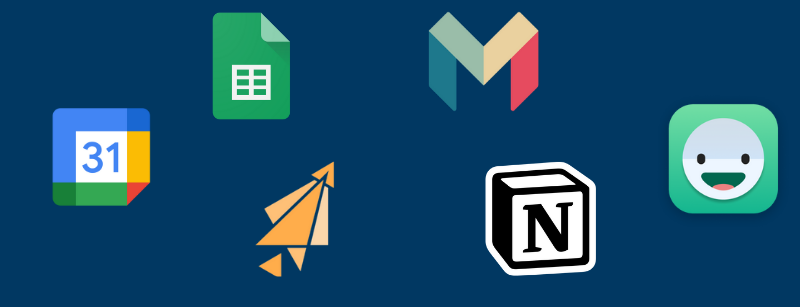Liz Ma, MSc Marketing Student Ambassador shares a handy guide to keeping your life on track whilst studying at LSE. Read on for practical tips and hacks.
It’s no secret that student life at LSE can get real busy, real quick. Have no fear—you’ve got me on your side!
Here’s a handy guide to keeping your life on track… or at least making a reasonable attempt at doing so!
Academics
Within my first few weeks at LSE, I noticed that many of my classmates’ laptops displayed similar looking screens. It turned out to be Notion, a productivity software that can be used for project management, taking notes, and creating tables that can be turned into calendars. A fount of organisation at your fingertips! No wonder everyone was using it.
Although I haven’t quite sorted out how to create beautiful embedded pages from scratch, I’ve since created a perfectly functional page that allows me to see my project deadlines, exam periods, and week-to-week deliverables at a glance.
Luckily for us, other Notion users have also taken the time to create templates for every use case you can think of. For my busiest periods, it’s goodbye to hastily printed out (and subsequently scribbled on) calendars, and hello to Notion!
Personal Finances
To organise my personal finances, I rely on Zero Based Budgeting. This is a simple budgeting system where you assign each pound (£) a role at the beginning of the month (or paycheck period). In that way, the sum is divided into different types of spending (e.g. transportation, eating out, groceries), bills (e.g. phone bill, gym membership), and savings, and there is none ‘left over’ without a role.
To facilitate this system, I utilise two things:
1.Google Sheets
First, I use Google Sheets for the budgeting process (expected expenses) prior to the month beginning, and to track the actual expenses after the month ends. Using Google Sheets also allows me to create useful graphs so that I can make predictions on which months will be more spendy.
2.Monzo
Second, I use Monzo to categorise and track all my expenses throughout the month. Compared to other similar challenger banks, Monzo wins out for me because of the ability to set budgets for each category, as well as an overarching overall budget.
Every month, I begin with Google Sheets to decide my expected expenses and then set each category budget to match on Monzo. When the month ends, I copy over my actual expenses back onto Google Sheets.
I believe that keeping your personal finances in check goes a long way in helping you feel like you have your life on track!
Physical health
Whether you prefer lifting or cardio, the LSESU Level Up Fitness gyms are ideal to get your activity in. But what should you do once you get there? Whether you have specific goals or just want to maintain your health, I recommend using the Boostcamp app. Not only does it have the most popular running, lifting, and bodyweight programmes for all levels clearly laid out, but also has video- and audio-based tutorials for beginner programmes.
In terms of fitting in exercise with busy periods, full-body sessions or cardio will ensure you’re not disadvantaged by missing a session or two in a week. Personally, I’m currently running the GZCLP programme!
Mental health
To track my mental health, I’m a die-hard fan of Daylio. Daylio allows you to track your moods (which are customisable with different faces and names), select activities (also customisable), and take down notes. This allows them to create charts, measure activity goals, and even create a ‘year in pixels’! The high-level statistics really lets you see which activities make you feel better, and which make you feel worse.
In this way, you can gain actionable insights into common trends, as well as which activities you should do more of (and vice-versa)! It’s also a good reminder that however you were feeling at one time, it too shall pass.
Scheduling
With the heavy amount of classes, events, and meetings on your plate, it’s very easy for something to slip from your memory. I find that it’s very important to write all time commitments down on an easily accessible calendar. By keeping it separate from the aforementioned academic calendar (which contains tasks and deadlines), I can easily find my availability for meetings.
I use Google Calendar so that I can colour code different items (e.g. classes, meetings, or social commitments).
Another tool that I have relied on heavily this year is When2meet, which is a simple website that allows you to easily find the best times to meet with other people. Each person simply fills in their availability for the dates selected, and the most common available periods are revealed! I can’t tell you how many When2meets have been created for my groups this year!
Learn more about our MSc Marketing programme






